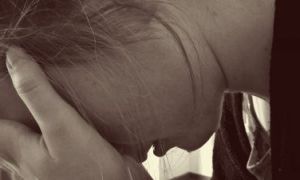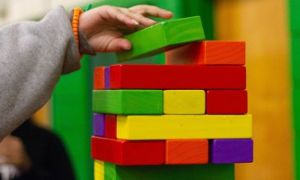

The Reduce, Reuse, Recycle Posters are a good reminder for Educators and children on what items are to be reduced, reused and recycled. These can be displayed within a recycling area set up in the service to promote a sustainable environment.
The NQS mandates services to take an active role in caring for the environment and contributing to a sustainable future. According to NQS Standard 3, Element 3.2.3, “The service cares for the environment and supports children to become environmentally responsible.” The following article provides information on Understanding Sustainability, Sustainability Ideas For Early Childhood Services and Sustainability Learning For Children.
The Climate Action Childhood Network believes in the importance of generating responses to climate change through creating and experimenting alongside young children. The goal is to move beyond learning “about” the climate crisis to seeing ourselves as part of it.
Sustainable Posters provide points on how services contribute to sustainability within their service by minimising waste, reducing energy, minimise water consumption and use less toxins.
The NQS states that services take an active role in caring for its environment and contributes to a sustainable future (standard 3.3).
Sustainability in early childhood education is an important part of keeping a natural and clean environment and should be incorporated into each and every service setting.
 Here is the list of the EYLF Learning Outcomes that you can use as a guide or reference for your documentation and planning. The EYLF… Read More
Here is the list of the EYLF Learning Outcomes that you can use as a guide or reference for your documentation and planning. The EYLF… Read More
 The EYLF is a guide which consists of Principles, Practices and 5 main Learning Outcomes along with each of their sub outcomes, based on identity,… Read More
The EYLF is a guide which consists of Principles, Practices and 5 main Learning Outcomes along with each of their sub outcomes, based on identity,… Read More
 This is a guide on How to Write a Learning Story. It provides information on What Is A Learning Story, Writing A Learning Story, Sample… Read More
This is a guide on How to Write a Learning Story. It provides information on What Is A Learning Story, Writing A Learning Story, Sample… Read More
 One of the most important types of documentation methods that educators needs to be familiar with are “observations”. Observations are crucial for all early childhood… Read More
One of the most important types of documentation methods that educators needs to be familiar with are “observations”. Observations are crucial for all early childhood… Read More
 To support children achieve learning outcomes from the EYLF Framework, the following list gives educators examples of how to promote children's learning in each individual… Read More
To support children achieve learning outcomes from the EYLF Framework, the following list gives educators examples of how to promote children's learning in each individual… Read More
 Reflective practice is learning from everyday situations and issues and concerns that arise which form part of our daily routine while working in an early… Read More
Reflective practice is learning from everyday situations and issues and concerns that arise which form part of our daily routine while working in an early… Read More
 Within Australia, Programming and Planning is reflected and supported by the Early Years Learning Framework. Educators within early childhood settings, use the EYLF to guide… Read More
Within Australia, Programming and Planning is reflected and supported by the Early Years Learning Framework. Educators within early childhood settings, use the EYLF to guide… Read More
 When observing children, it's important that we use a range of different observation methods from running records, learning stories to photographs and work samples. Using… Read More
When observing children, it's important that we use a range of different observation methods from running records, learning stories to photographs and work samples. Using… Read More
 This is a guide for educators on what to observe under each sub learning outcome from the EYLF Framework, when a child is engaged in… Read More
This is a guide for educators on what to observe under each sub learning outcome from the EYLF Framework, when a child is engaged in… Read More
 The Early Years Learning Framework describes the curriculum as “all the interactions, experiences, activities, routines and events, planned and unplanned, that occur in an environment… Read More
The Early Years Learning Framework describes the curriculum as “all the interactions, experiences, activities, routines and events, planned and unplanned, that occur in an environment… Read More

The assessment and rating process for early childhood education and care services involves several key...
See more...
Workplace Bullying is something that each of us may have experienced at some point of...
See more...
Children are more likely to be confident and involved learners when their family and community...
See more...© 2009-2025 Aussie Childcare Network Pty Ltd. All Rights Reserved.

